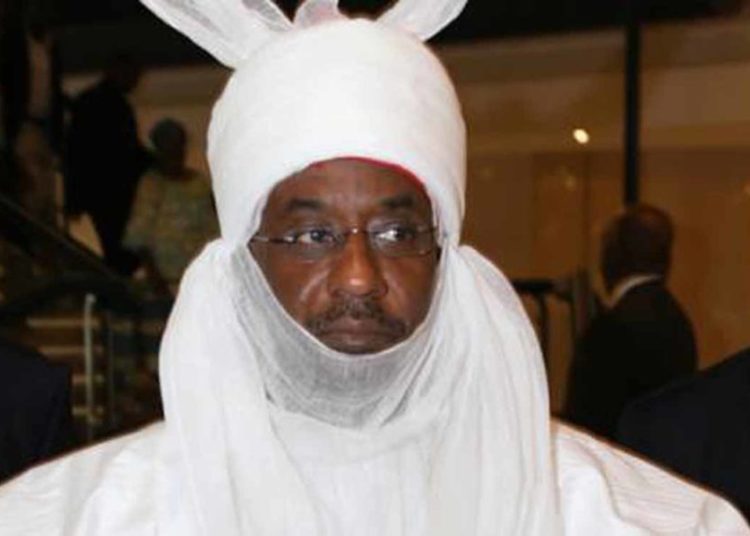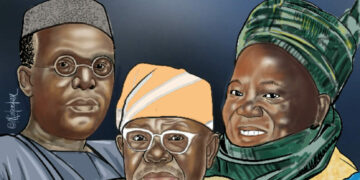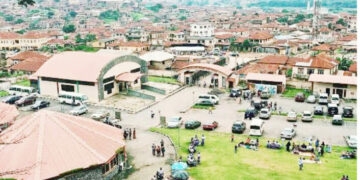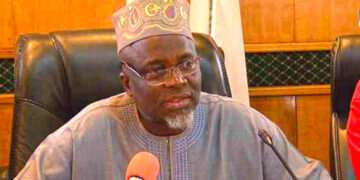Former governor of the Central Bank of Nigeria and 14th Emir of Kano, Sanusi Lamido Sanusi, has expressed dismay over the current situation in Nigeria, saying the country and its people have never had it so bad in its checkered history.
Sanusi stated this at the Akinjide Adeosun Foundation (AAF) Leadership Colloquium and Awards, Chapter 7, themed ‘Are Good Leaders Scarce in Nigeria’?
He specifically said the country is in a deeper hole, with bigger challenges, now than it was in 2015.
Painting a gloomy picture, he also warned that 2023 would be worse compared to what we had in 2015.
Speaking at the event which was the seventh organised to mark the birthday of its founder, Pharmacist Akinjide Adeosun, secretary to Oyo State government, Sanusi lamented that despite the current
He said, “The levels of poverty, levels of insecurity, the rate of inflation, the unstable exchange rate, the lack of power were not palatable.
“This is the only oil-producing country that is grieving at the moment when oil prices have gone up as a result of the Russia/Ukraine war. Our total revenue is not able to service our debt…. And if anybody does not understand that we are in a complete mess, we are.
“We were in a deep hole in 2015. And between 2015 and now, we have been digging ourselves into a deeper hole. We thought we had a big problem in 2015. 2015 is nothing, compared to what will happen in 2023. We have terrorism, we have banditry, we have inflation, we have unstable exchange rate, and the worst thing is that those in leadership actually think we are going to thank them when they leave office; that we are going to appreciate them. There is no change. There is no sense of urgency. If you are running a company and your sales revenue cannot pay interest, you know you’re bankrupt.
“When the total revenue of the federal government cannot service debt and we are smiling. These are the kinds of questions we need to ask. And the reality is that there are so many Nigerians who, given the opportunity, will do well but they simply cannot contest in that space…”
Sanusi blamed the nation’s challenges on the lack of vision of some leaders.
He continued: “What is our vision for Nigeria? Do we have a vision of one country? Do we have a vision of one united country that lives peacefully with itself – diverse, multicultural, multi-religious but one? And these things are not self-contradictory. Where did we get it wrong?
“Leaders after leaders, most of those who have ruled did not have a vision for a united Nigeria. How would you like to be remembered after eight years as a President, after eight years as a governor, eight years as a minister, and eight years as Governor of CBN? How would you like history to remember you? They have not thought about it. The vast majority of those in office have a vision that is limited to the next election. It is to win. And when you’ve won, you’ve reached a destination, not a journey.”
Harping tacitly on the vexed of Muslim-Muslim ticket, he said, “We are going into an election. What are we talking about? North and South, Muslim and Christian; is that really what we are concerned about? Does it matter if you have a government made up of 100 per cent incompetent Muslims or 100 per cent incompetent Christians? Will that government work? Yes, we must think of diversity and we must begin to think of fairness in this country and balance, not to create any tension.
“How many people can go to a political party and bring out tens of millions of dollars to pay delegates? Where are you going to get the money and when you get the money, assuming you raise it from people, how are you going to look at the people when you are in office and do the right thing.
“You’re already finished; you’ve already sold your conscience to get there. Or when a nation is ready to sell itself; when the poor people on the streets are ready to be given N5000, N2000, and cast a vote for N2000 today and give up education, give up healthcare and give up security for the next four years? Then, maybe we understand what Chief Awolowo meant when he said a nation gets the leadership it deserves. We, as Nigerians, need to ask these questions.
“People say to me, ‘why do you keep criticizing people? Why do you keep talking about public policy?’ And I was a public officer and I have a record – talk about my own record. I met inflation at 15.6 per cent, left it at 7.8 per cent. I stabilised the exchange rate; I saved the banks. I transformed the payment system.
“I have my record. And because I had the opportunity to serve, I served and I left a record. So, I’ve earned the right to criticise any public officer who is incompetent and I’ll call him out. And I think we need to start calling out incompetence.’’





